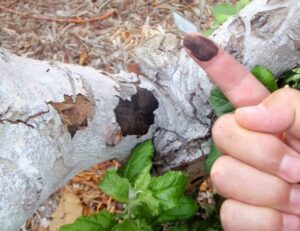Although Phoenix has a desert climate, that doesn’t mean homeowners have only sand, rock, and cacti in their yards. On the contrary, this region is well-suited for many different kinds of plants and trees. Strategic tree and shrub planting can not only save you up to 25% on your energy bills, but these natural elements can also make your property more valuable — or even provide you with some home-grown nutrition.
Citrus trees and other kinds of fruit trees are relatively plentiful in Phoenix. That said, professional arborists know that these trees do need some help to ensure they stay healthy for the long haul. To that end, here are a few dos and don’ts to keep in mind when caring for your citrus trees.
Do…
- Know When to Water: Any arborist will tell you that citrus trees typically need to be watered more frequently than other kinds of trees. That said, you shouldn’t water your trees constantly — even when you live in a hot and dry climate like Phoenix. If you don’t give your tree a break from watering, your tree could succumb to root rot. Homeowners with clay-like soil will need to water less frequently than those with rockier or sandier soil, as clay holds moisture for a longer period. As a general rule, you should water your citrus trees every week or every two weeks during the summer; during the winter, you can water every three to four weeks, though you should be watching your trees more closely when temperatures drop.
- Fertilize Properly: Homeowners in Phoenix should typically fertilize their citrus trees a few times a year. Be sure to pay extra attention to this task during the early months of spring (February and March, in particular). Citrus trees may benefit from fertilizers that have been specially formulated, as they can obtain additional nutrients and nitrogen from this resource. It’s a good idea to talk to an arborist or tree supplier to find out which type of fertilizer you should use in your specific circumstances. It’s generally best to refrain from fertilizing after the summer ends, as this will encourage new growth during a vulnerable time of year.
Don’t…
- Over-prune Your Citrus Tree: Pruning is actually a tricky business when it comes to citrus trees. Although some fruit trees do better when they’re pruned, citrus trees typically don’t need much of it at all. In fact, pruning is actually a source of stress for citrus trees, so you should limit any pruning you do. You should remove dead or diseased branches, but otherwise, you can probably leave well enough alone. If you prune, aim for mid-February to early March; this will allow you to avoid both temperature drops and sustained periods of warmth and growth. It may be beneficial to consult with an arborist about pruning to determine whether it may be necessary.
- Dismiss Professional Help: Although citrus trees may be relatively low maintenance, you may still require expert assistance from a company offering citrus tree care services. Whether you’d like to add a lemon tree to your yard or you’re seeing potential signs of disease on your miniature orange grove, it’s best to work with a tree care service Phoenix homeowners trust. Citrus trees are an investment, so you’ll want to be sure that yours pays off. A tree care professional can ensure problems are identified early and that nothing stands in your way of enjoying the fruits of your labor.
Citrus trees can beautify a property and make your life that much sweeter. However, proper care is a must. By keeping these dos and don’ts in mind, you’ll be in a better position to maintain the citrus trees around your home this season.



